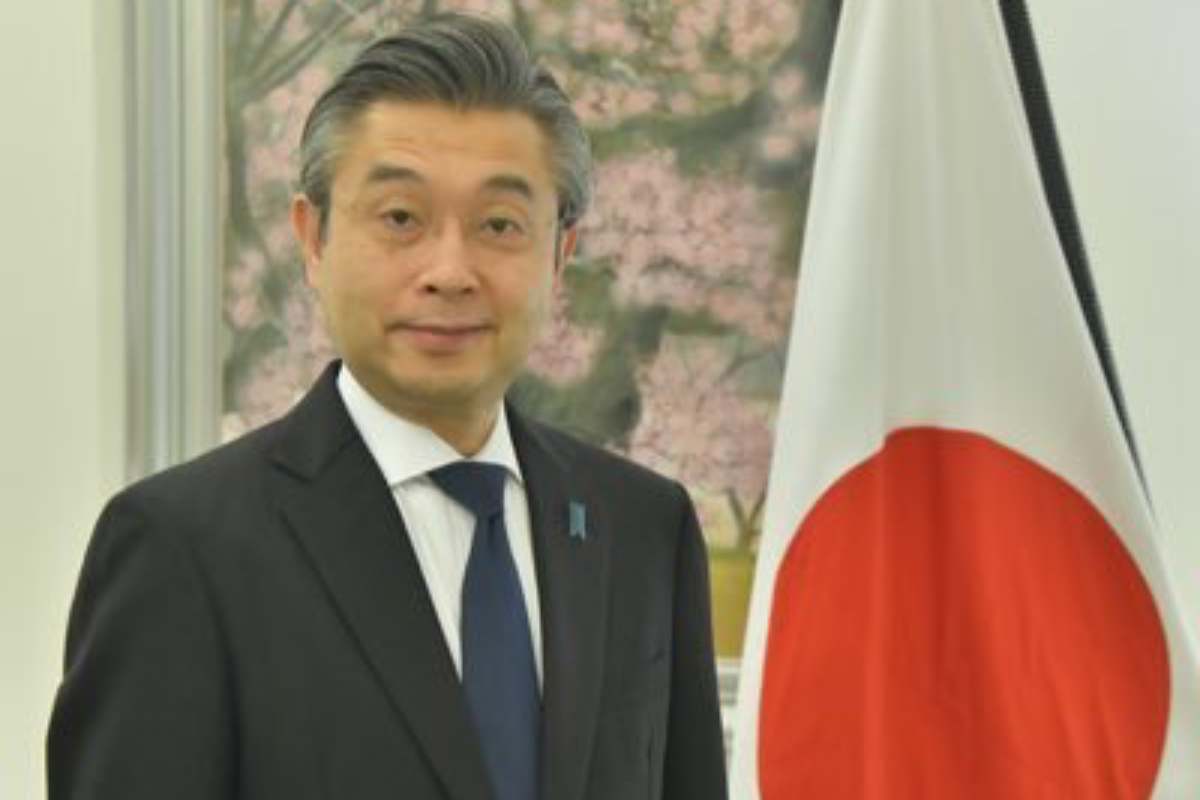Japan always gives priority to developing the northeast region of India and increasing trade and economic activities with the neighbouring Bangladesh, Japan’s Ambassador to India Hiroshi Suzuki said here on Tuesday.
Addressing the 3rd India-Japan Intellectual Conclave on the theme of “North East India, Bangladesh and the Bay of Bengal in the Indo-Pacific: Building Partnerships – The Way Forward” here, he said that in the Bay of Bengal region, comprising Bangladesh, northeast region of India and West Bengal, 300 million people are living ensuring a good prospect of trade and economy.
Advertisement
“Bangladesh could be the industrial hub of the Bay of Bengal region. We need industries and investment in the region for the economic growth of the region and it would resolve many issues including the unemployment problem,” Suzuki said.
He said that Bangladesh’s under construction Matarbari deep sea port (in Cox’s Bazar of south east Bangladesh) after completion of commissioning in 2027 would give a big push to the water connectivity between the Bay of Bengal region and the rest of the world.
The Shillong based “Asian Confluence”, a premier think tank of India organised the two-day (Tuesday-Wednesday) conclave, where Union DoNER (Development of the North Eastern Region) Minister G.Kishan Reddy, Minister of State for External Affairs Raj Kumar Ranjan Singh, Bangladesh’s Minister of State for Foreign Affairs Bangladesh Shahriar Alam also spoke.
The Japanese Ambassador also said that his Prime Minister Fumio Kishida earlier discussed with his Indian counterpart Narendra Modi the joint development of the northeastern region of India while many JICA (Japan International Cooperation Agency) projects are now under implementations in the region.
“Northeast India and Bangladesh value change would prosper both the countries. Use of the upcoming Matarbari deep sea port and existing Chhattagram and Mongla port in Bangladesh would help to a great extent to the region. Both Bangladesh and the northeast region of India have a win win prospect,” he said.
Suzuki said that around 338 Japanese companies are working in Bangladesh and Japan Bangladesh economic partnership would be further strengthened and expanded in the near future.
Asian Confluence Executive Director Sabyasachi Dutta said that the conclave brought together a galaxy of senior policymakers, diplomats, businesses and academic institutions to make an assessment on the topic of northeast India and Bangladesh multimodal connectivity in the context of India-Japan collaboration in the Bay of Bengal region with a special focus on Tripura and the adjoining northeastern states as a connectivity hub of the future.











